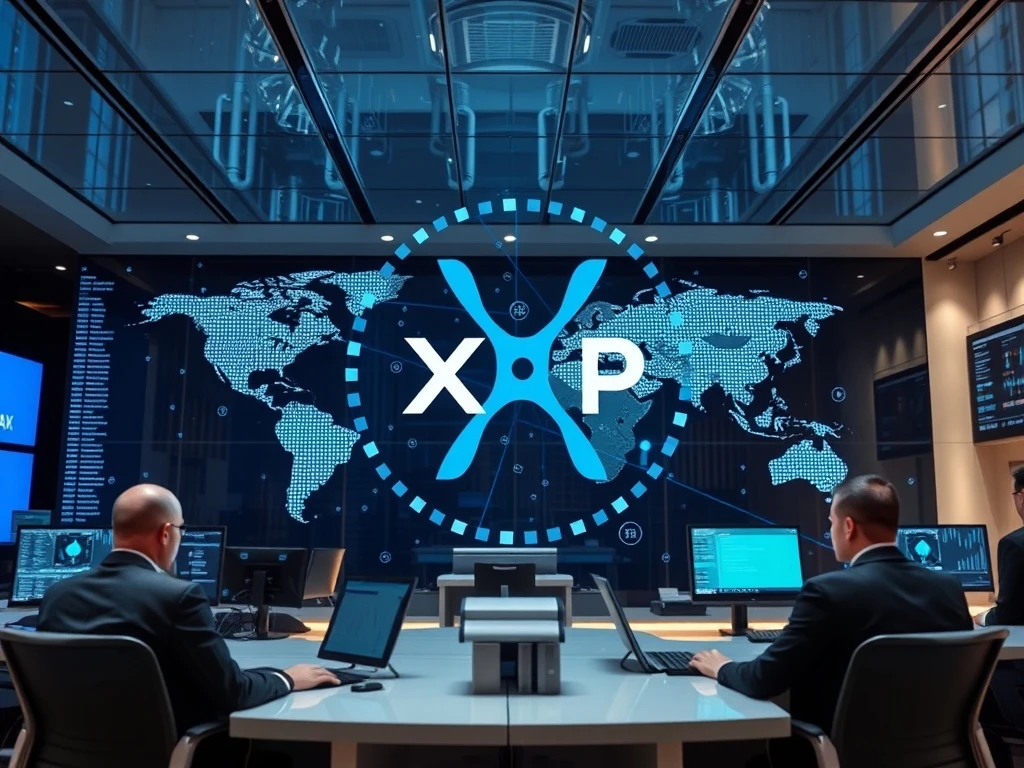The XRP Ledger is quietly revolutionizing institutional blockchain adoption, emerging as the secret weapon for major financial institutions seeking faster, cheaper, and more compliant cross-border solutions. With a staggering 400% year-on-year growth in 2025, this blockchain platform is capturing institutional attention worldwide.
XRP Ledger’s Institutional Advantages
The XRP Ledger offers unparalleled benefits for financial institutions. Its high-performance architecture processes transactions rapidly while maintaining minimal fees. Furthermore, the platform provides built-in compliance features that traditional finance requires. These features include:
- Authorization controls for asset issuers
- Token freezing capabilities under specific conditions
- Clawback mechanisms for regulatory compliance
Market Opportunity and XRP Ledger Adoption
Institutional adoption of the XRP Ledger is accelerating significantly. Boston Consulting Group estimates tokenization of illiquid assets represents a $16 trillion market opportunity by 2030. The XRP Ledger positions itself perfectly to capture substantial market share. Financial institutions increasingly prefer this blockchain for several reasons:
- Regulatory clarity post-SEC settlement
- Proven cross-border payment solutions
- Growing ecosystem partnerships
XRP Ledger Technical Superiority
The XRP Ledger outperforms competitors in several critical areas. Transaction speeds exceed most blockchain alternatives while maintaining security. Cost efficiency remains another standout feature, making institutional adoption economically viable. Key technical advantages include:
- 4-second settlement times
- Fractional transaction costs
- Scalable infrastructure for mass adoption
Global Expansion and Partnerships
Ripple’s On-Demand Liquidity service leverages the XRP Ledger across multiple regions. Asian and UAE financial institutions particularly embrace this technology. The recent USDC integration further enhances institutional utility. This expansion demonstrates:
- Growing regional adoption patterns
- Enhanced liquidity options for institutions
- Reduced capital requirements globally
Future Outlook for XRP Ledger
The XRP Ledger continues evolving to meet institutional demands. Price forecasts remain optimistic, with some analysts predicting $9 before 2030. However, market conditions and regulatory developments will influence actual outcomes. The platform’s future success depends on:
- Continued institutional partnerships
- Regulatory environment stability
- Technology adoption pace
Frequently Asked Questions
What makes XRP Ledger suitable for institutions?
The XRP Ledger offers built-in compliance features, fast settlement times, and low transaction costs that meet institutional requirements for security and efficiency.
How does the SEC settlement affect XRP?
The 2024 settlement removed regulatory uncertainty, opening doors for institutional investment and exchange-traded product inclusion.
What is the transaction burning mechanism?
XRP transaction fees are permanently burned, reducing overall supply and potentially increasing value through scarcity.
How does XRP Ledger handle asset tokenization?
The platform supports tokenization of various assets with compliance features that allow issuers to enforce rules and maintain regulatory standards.
What regions show strongest XRP Ledger adoption?
Asia and the United Arab Emirates currently lead institutional adoption through Ripple’s On-Demand Liquidity service and partnership expansions.
How does USDC integration benefit XRP Ledger?
USDC stablecoin integration provides institutions with regulated fiat-equivalent assets for settlement and liquidity management on the platform.








